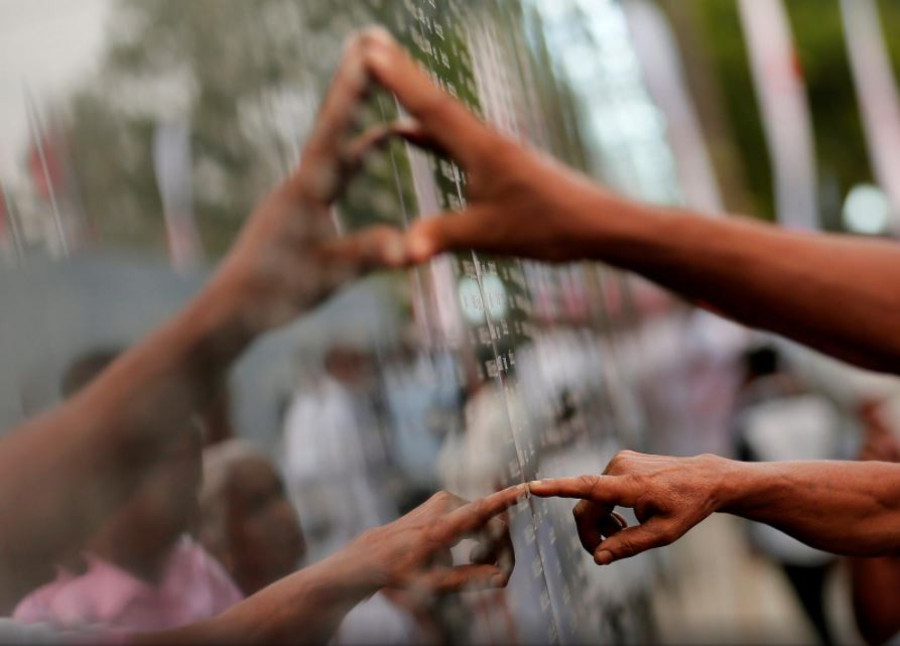Editorial
Karma never forgets
The spectre of injustice comes back to haunt the perpetrators of Sri Lankan war crimes.
The 46th Session of the United Nations Human Rights Council earlier this week passed a landmark resolution on outstanding issues of war-era human rights abuses in Sri Lanka. The resolution on 'Promoting reconciliation, accountability and human rights in Sri Lanka' received 22 votes out of 47 member states in favour while 11 members voted against it and 14 abstained.
The council adopted a resolution to allocate a $2.8 million budget to begin investigations and lay the ground for possible future prosecutions, highlighting the fact that issues of gross human rights violations are a global concern, and that these issues come back to haunt the perpetrators—and their future generations—at one point or another in the future. The resolution is a significant step towards providing justice to the victims of war crimes even as Sri Lanka claims that the resolution cannot be implemented without its consent and acceptance.
As expected, Sri Lanka was quick to discredit the resolution, calling it 'politically motivated' and rejecting the idea of an international mechanism collecting and preserving evidence of war crimes by the security forces as well as the Liberation Tigers of Tamil Eelam (LTTE) insurgents. The 26-year insurgency began in 1983 when the Tigers took up arms to carve out a separate state for Tamils in the island nation. An estimated 100,000 people—many of them innocent civilians—had been killed by the time the insurgency ended in 2009. Twelve years after the conflict came to an end, victims await justice even as an independent investigation into cases of gross violation of human rights remains elusive.
It is alarming, though not completely surprising, that China, Bangladesh and Pakistan voted against the resolution while India, Japan and Nepal abstained. Although the resolution was adopted owing to the majority vote in its favour, Sri Lanka seemed to have found trusted allies in its neighbours and was quick enough to thank the members who had voted against the move or abstained. It is as if the countries in the neighbourhood could not afford to put Lanka in the dock even as most of them face allegations of having skeletons in their own cupboards.
Nepal's abstinence in the resolution is of utmost concern for Nepalis who are eagerly waiting for the issues of gross abuses of human rights by the state and the Maoists during the insurgency to be resolved internally and amicably. A member of the council for a second term, Nepal is yet to make headway in completing the transitional justice process. All that it has done is extended the tenure of the two commissions—the Truth and Reconciliation Commission and the Commission of Investigation on Enforced Disappeared Persons—that have little work to show in their six years of existence.
The indolence on the part of the commissions—and by extension the political parties that were directly or indirectly involved in the insurgency and have little interest in taking the justice process to a logical conclusion—means that the victims and the perpetrators of the crimes have failed to reconcile with each other and pave the way for a shared future. The best way forward is to work towards resolving the outstanding issues amicably within the country.
The UN Human Rights Council resolution on Sri Lanka war crimes is a wake-up call for Nepal to finish its own human rights abuse issues at the earliest. If we fail to do that, we will have no option but to wait for the issue to be internationalised, and for us to become a matter of global scrutiny on human rights abuse cases.




 8.88°C Kathmandu
8.88°C Kathmandu














